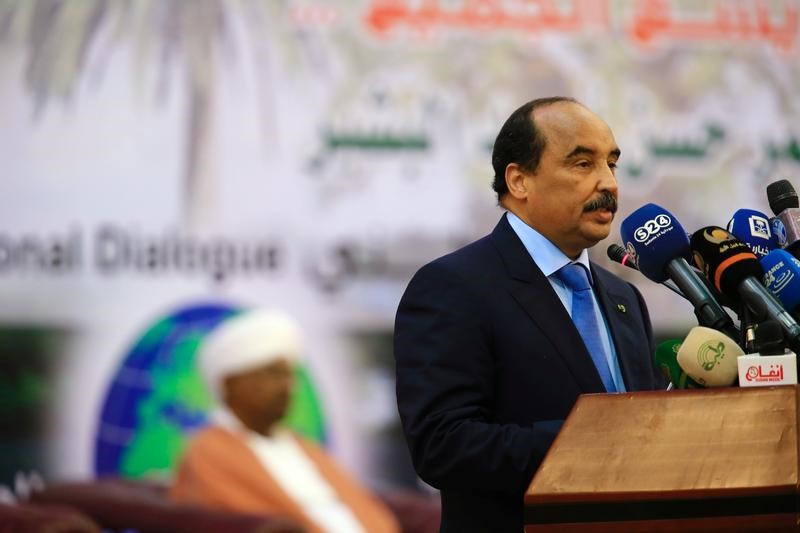NOUAKCHOTT (Reuters) - Mauritania held a contentious referendum on Saturday to alter the constitution amid widespread opposition claims that the vote is a ploy to increase presidential power.
Tension has mounted in the lead-up to the referendum which calls for the abolition of the senate and the merging of other key institutions, though the capital Nouakchott was calm on Saturday.
The opposition, concerned that the vote will give President Mohamed Ould Abdel Aziz too much power and pave the way for him to scrap presidential term limits, has boycotted the vote.
Mauritania has never had a peaceful transfer of power and senior officials have raised concerns by speaking in favour of lifting term limits, currently set at two five-year terms. Abdel Aziz last year said that he had no plans to extend the presidential mandate.
Abdel Aziz says the moves will improve governance in the West African country, but it will also give him more influence over decision-making - he described the senate as "useless and too costly" in front of cheering crowds on Thursday.
Police clashed with anti-government demonstrators in a series of protests in Nouakchott last week, and senators have occupied the senate building in protest.
Abdel Aziz has been an ally of the West in the fight against Islamists in the Sahara. He first came to power in a coup in 2008 and won a second term in 2014, but is barred by the constitution from running again.
Scrapping term limits would enable Abdel Aziz to follow leaders of more than a dozen other African countries including in Uganda, Cameroon, Equatorial Guinea, and more recently Rwanda and Congo Republic.
"Saturday's constitutional referendum represents an authoritarian shift that will exacerbate the threat of civil unrest over the next two years," said Verisk Maplecroft analyst Sean Smith in a note.
"The proposed institutional reforms would give Abdel Aziz even more power in an already hyper-presidential system."
